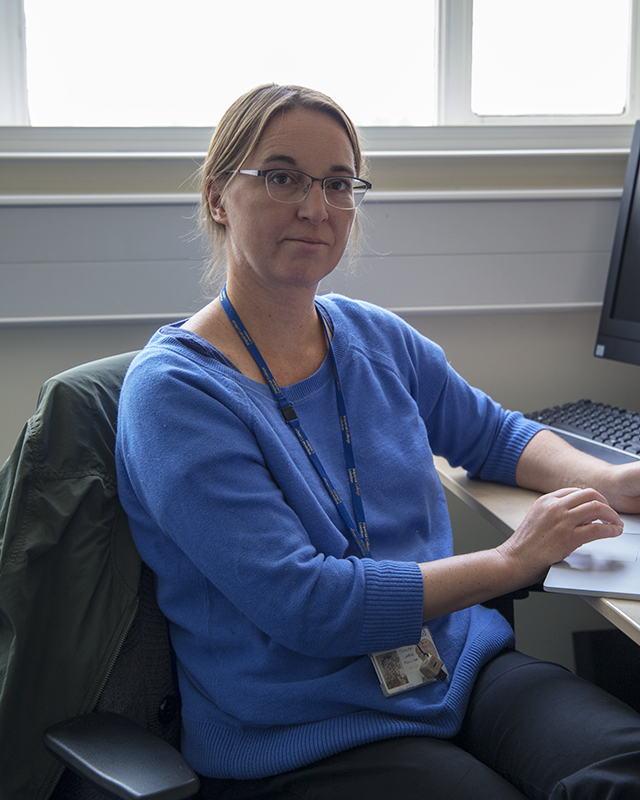
This post was originally published on the Department of Medicine Staff Blog on 10 October 2018.
For the latest edition of our Staff Profile series, we spoke to Dr Candice Roufosse who recently joined the Department as a Senior Clinical Lecturer.
Introduce yourself – who are you and what do you do?
I am a Senior Clinical Lecturer with research interests in renal and transplant pathology, based at the Centre for Inflammatory Diseases, Division of Immunology. I lead the Transplantation programme of the BRC Immunology theme: “Improving the prevention and the diagnosis of antibody-mediated rejection (ABMR) in kidney transplantation”. As a Cellular Pathologist, my research revolves around making optimal use of human tissue samples to decipher the pathophysiology of graft rejection and of glomerular diseases. My particular areas of expertise are discovery and validation of biomarkers of transplant rejection derived from histological analysis, gene expression analysis and electron microscopy. I am also working on developing digital nephropathology as a diagnostic and research tool. I do some teaching on transplantation pathology in years 2,5 and 6 of the medical school.
When did you first join the Department, and where were you working before?
I came to this role in April 2018, from my position as a Consultant Cellular Pathologist with a specialism in Renal and Transplant pathology at the Hammersmith Hospital, Imperial College Healthcare NHS Trust. I continue to work there as an Honorary Consultant, alongside my current academic commitments. I provide histological reports for biopsies of both native and transplant kidneys, which involves integration of findings from light microscopic, immunohistochemical and electron microscopic examination. Every week, I attend the Renal Biopsy Multidisciplinary Meeting where each patient’s biopsy is discussed with the clinical picture, and individual management decisions are made. As Subspecialty lead for Renal and Electron Microscopy within North West London Pathology, I also participate in service management.
What do you find to be the most challenging part of your role?
There are a lot of new skills to learn in my new academic role, spanning everything from laboratory techniques to networking to administrative duties. It’s a challenge, but also refreshing, coming from a well-oiled clinical role. As for most clinical academics, there is sometimes a conflict between my clinical duties and my academic duties, with both competing for any drop of spare time and energy. Each one could comfortably expand into a full-time role, so it is a challenge to organise my time schedule and physical location, in order to protect both.
What do you find to be the most rewarding part of your role?
Nothing is as rewarding for me as finally publishing the results of years of carefully planned and conducted research, sharing these results with others at meetings, and through this contributing to progress in understanding disease and treating patients.
I also enjoy getting to know new people with skills and knowledge I don’t have, who can teach me, give me new ideas and work with me (and vice versa, I hope).
What are your biggest hobbies/passions outside of work?
I derive an inordinate amount of happiness from simple things, like seasonal changes, chatting and playing boardgames with family and friends, watching kids grow up, good food, good wine and good books. London is a city with continuously renewing exciting cultural offerings so it’s tricky to ever get bored. My péché mignon is pitching a tent in a beautiful and preferably remote place; this summer I camped in the Joshua Tree desert and spent a few nights in a treehouse in Wales.
Your favourite thing about working in the Department?
The people. In all areas, they are delightful, bright and helpful.
If the Department could do one thing to improve its organisational culture, what do you think that should be?
Pursue increased diversity, including in leadership, and the expansion of cross-disciplinary research. In the face of an increasingly competitive world, innovative views and viewpoints will be vital.